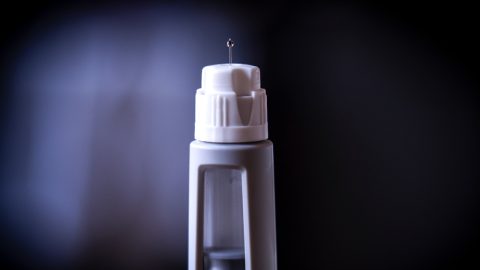The brain-eating amoeba that sickened a Missouri resident who’d recently visited Iowa has been found in northern states more often in recent years as air and water temperatures rise, according to the Centers for Disease Control and Prevention.
The beach at Lake of Three Fires in Taylor County was temporarily shuttered for swimming on Friday as a “precautionary response” after the rare brain infection caused by Naegleria fowleri bacteria was reported in a person visiting from Missouri, the Iowa Department of Public Health announced in a news release.
The disease the amoeba causes, known as primary amebic meningoencephalitis, or PAM, is usually deadly. Only four people have survived PAM out of 154 cases recorded in the U.S. since 1962, according to the CDC.
The infected Missouri patient was being treated in the intensive care unit, health officials said Thursday.
Naegleria fowleri lives in water and soil, and testing is underway to confirm its presence in Lake of Three Fires, with help from the Iowa Public Health Department and the CDC.
Exposure to the amoeba used to be even more rare outside of southern states. But of the six cases of PAM found in the Midwest since 1978, five occurred during or after 2010, according to a CDC study published in 2020, which analyzed U.S. PAM cases from 1978 to 2018.
“The rise in cases in the Midwest region after 2010 and increases in maximum and median latitudes of PAM case exposures suggest a northward expansion of N. fowleri exposures,” the study said.
Climate change could be the culprit, according to Julia Haston, a medical epidemiologist with the CDC.
“It’s an amoeba that really likes warm conditions, really likes warm fresh water,” she said. “That’s the concern — that climate change can be contributing to these higher air temperatures.”
The CDC study investigated a potential climate link, and found “an increase in air temperatures in the two weeks before exposures compared with 20-year historic averages.”
That led the authors to hypothesize that “rising temperatures and consequent increases in recreational water use, such as swimming and water sports, could contribute to the changing epidemiology of PAM.”
In other words, warmer weather both creates better conditions for the bacteria in northern waters, and prompts more people to swim more often in lakes, streams and ponds where the amoeba can be found.
Climate change is similarly suspected to be behind the geographic expansion of another dangerous bacteria, Vibrio vulnificus, which can cause flesh-eating infections known as necrotizing fasciitis.
The CDC has not observed an overall rise in Naegleria fowleri exposures over time, however. In 2019, 2020 and 2021, there were three cases reported per year, which is about average, Haston said.
But one of the cases in 2021 was in Northern California, at a “latitude similar to this case that we’re investigating now” in Iowa, she said.
The status of the patient in Missouri was unclear as of Tuesday.
“This disease is very aggressive and very quick so once the amoeba enters the nose it can travel … to the brain,” Haston said. “Once it gets access to brain, it very rapidly causes inflation and swelling in the brain and destroys brain tissue. By the time patients present with symptoms and medication is started, most of the time it’s just too late to reverse that damage.”
For those worried about Naegleria fowleri exposure, Haston said precautions can be taken to avoid infection, and it’s not necessary to avoid swimming in fresh water all summer.
“When you’re participating in swimming or recreational water activities in lakes or ponds, really avoid getting water in the nose,” Haston said. “Avoid jumping, diving and splashing. If you are going to be swimming, wear a nose clip.”
Even though infections are extremely rare, she added, the amoeba can be found in a wide range of locations.
“Any fresh water source, we should assume that it has Naegleria fowleri in it,” Haston said.










Recent Comments